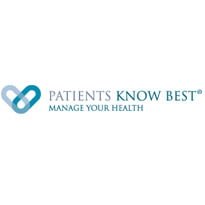Patients Know Best is being trialled at intestinal failure units at St Mark’s Hospital in Harrow and the Salford Royal NHS Foundation Trust.
St Mark’s and Salford Royal are home to England’s two centres of excellence for patients with severe intestinal failure. The rare condition requires frequent hospital visits and treatment by a range of different clinical teams. Patients live all over the country.
The patient records access portal gives people online access to their medical records and care plans and allows clinicians and patients to message securely through the site and hold online consultations.
The two units have invited 200 of their IFU patients to be part of the trial and up to 60 patients are already using the system at St Marks. Both hospitals plan to run full clinical evaluations once results of the initial trial have been gathered.
Dr Simon Gabe, consultant gastroenterologist at St Mark’s Hospital, said he introduced his patients to the system more than a year ago. Some were very keen and started using it immediately, while others have not taken up the service.
“Some people find it incredibly useful, it’s hard to predict those patients, they tend to be younger and often living quite a long way away or travelling a lot,” he explained.
Patients with severe intestinal failure are on a form of “life-support” in their homes, but can go on holiday where having online access to their care plans and records provides security. In one case, a patient was able to show a clinician in Spain their records when they got ill while on holiday.
Two patients have also convinced their GPs to contribute to PKB, making communication with primary care much easier, he added.
Dr Gabe applied for central funding to pilot the project which was approved and is planning to apply for more funding for its second year. He hopes to make it part of a new national network being set up for the treatment of severe intestinal failure, allowing anyone on the network to benefit from it.
Dr Gabe said he was introduced to PKB when patients from Great Ormond Street Hospital – where gastroenterology clinicians use the system – were being transferred into adult care services. The portal make this stressful time easier for patients and ensures he gets all of the historical documents related to their care.
“I like to think that I can better manage those patients using PKB. It’s given another way of communicating with patients and it helps them address issues and feel as though they are on top of things,” he said.
However, he acknowledged “significant resistance” to introducing the patient portal from some areas.
Partly this is due to resistance to change, but he said there is a "reasonable fear" about the system creating more work for clinicians when patients can message them directly online.
“I’m quite open-minded about these things and my view is if patients have access and ask a question directly that I can sort out easily, it’s going to prevent them contacting me a different way,” said Dr Gabe.

